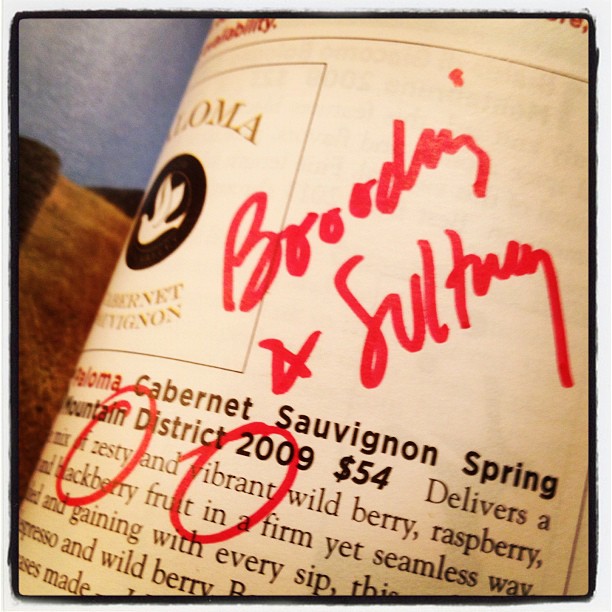Brooding & Sultry

Brooding & Sultry: An apparition summoned from the glossy pages of Wine Spectator early in the morning…
Saturday morning found me soaking up the early December sunrise and flipping through the Wine Spectator‘s Top 100 Wines of 2011. Perhaps the only oenological pleasure surpassing sipping (and swallowing) fermented grape juice is reading (and imitating) wine reviews.
Wine Review Caricature
I’ve scribbled a few “caricature” wine reviews over the years and toyed with collecting them into a collection of vignettes and doodles. Not to worry, I won’t submit you to my bizarre brand of wine esoterica, not yet. But you might enjoy this curmudgeonly if slightly pompous fart that wafted out of the magazine pages briefly before vanishing into thin air (much to the surprise of my dog, Griffin, who sighed and rolled over to reflect on breakfast past and a sunny walk to come.)
Did the audio clipped (above) play for you? If not, I’m sorry. Audio clips can be memory gluttons, so — depending on your internet connection — it may be a bit grumpy. Or slooowww. If listening requires too much patience, abandon the mission. It’s a mere trifle. A goofy trifle. A half-baked (at best) audio sketch.
Skip the Sketch. Quaff!
A better idea altogether would be to tuck in next to a roaring fire after opening a brooding but sultry bottle of claret to quaff with fresh baguette, pheasant pâté and runny Époisses. Aaahhh…


